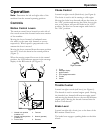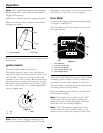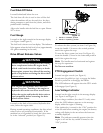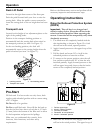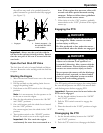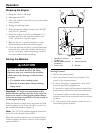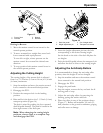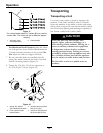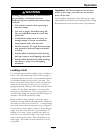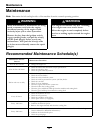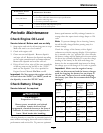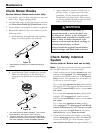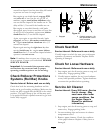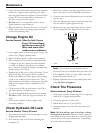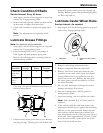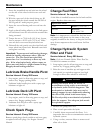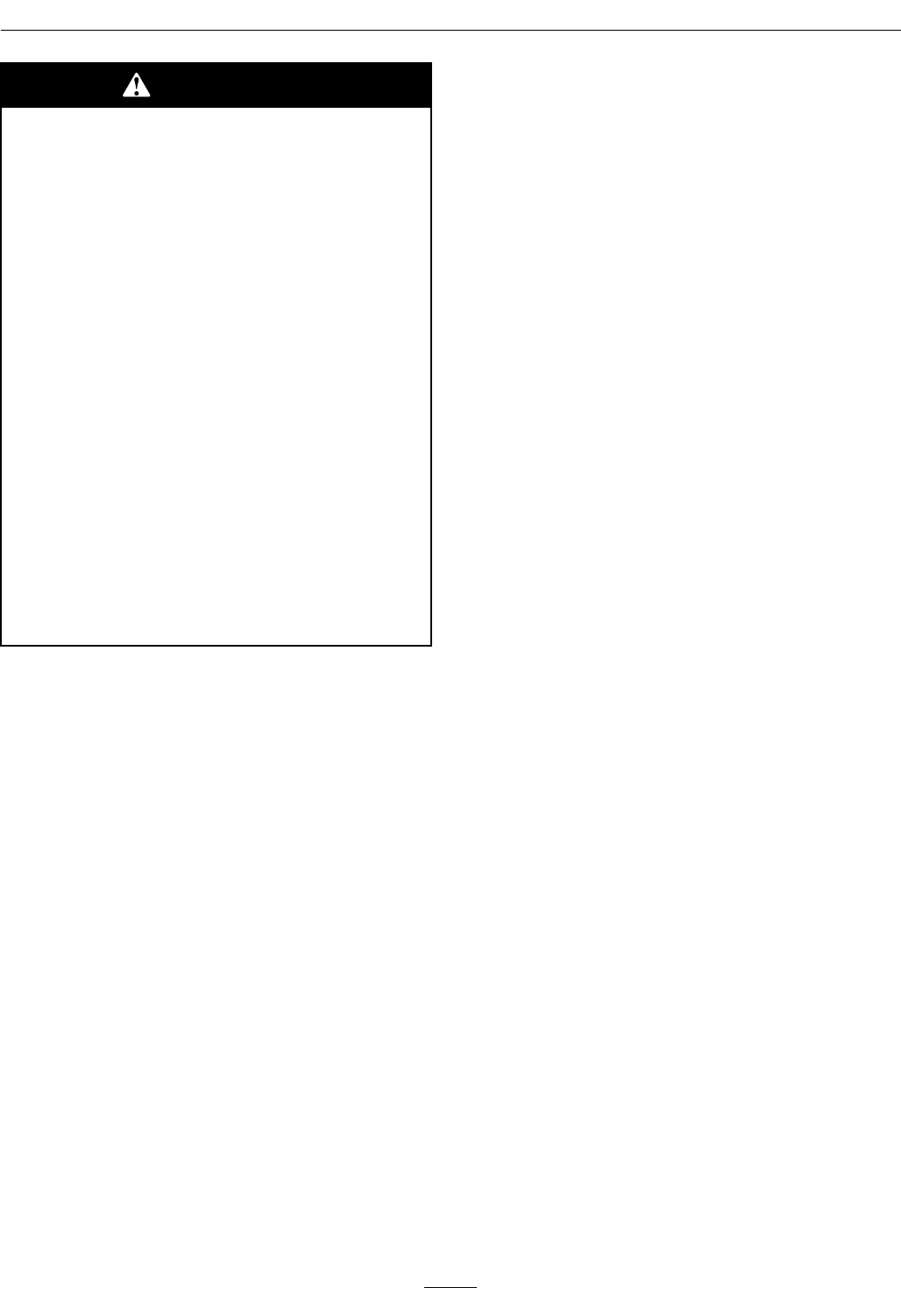
Operation
WARNING
Loading a unit on a trailer or truck increases
the possibility of backward tip-over.
Backward tip-over could cause serious injury
or death.
• Use extreme caution when operating a
unit on a ramp.
• Use only a single, full width ramp; Do
Not use individual ramps for each side
of the unit.
• If individual ramps must be used, use
enough ramps to create an unbroken
ramp surface wider than the unit.
• Do Not exceed a 15° angle between ramp
and ground or between ramp and trailer
or truck.
• Avoid sudden acceleration while driving
unit up a ramp to avoid tipping backward.
• Avoid sudden deceleration while backing
unit down a ramp to avoid tipping
backward.
Loading a Unit
Use extreme caution when loading units on trailers or
trucks. One full width ramp that is wide enough to
extend beyond the rear tires is recommended instead
of individual ramps for each side of the unit. The
lower rear section of the tractor frame extends back
between the rear wheels and serves as a stop for
tipping backward. Having a full width ramp provides
a surface for the frame members to contact if the
unit starts to tip backward. If it is not possible to use
one full width ramp, use enough individual ramps to
simulate a full width continuous ramp.
Ramp should be long enough so that the angles
between the ramp and the ground and the ramp and
the trailer or truck do not exceed 15°. A steeper angle
may cause mower deck components to get caught as
the unit moves from ramp to trailer or truck. Steeper
angles may also cause the unit to tip backward. If
loading on or near a slope, position the trailer or
truck so it is on the down side of the slope and the
ramp extends up the slope. This will minimize the
ramp angle. The trailer or truck should be as level
as possible.
Important: Do Not attempt to turn the unit
while on the ramp, you may lose control and
drive off the side.
Avoid sudden acceleration when driving up a ramp
and sudden deceleration when backing down a ramp.
Both maneuvers can cause the unit to tip backward.
27



